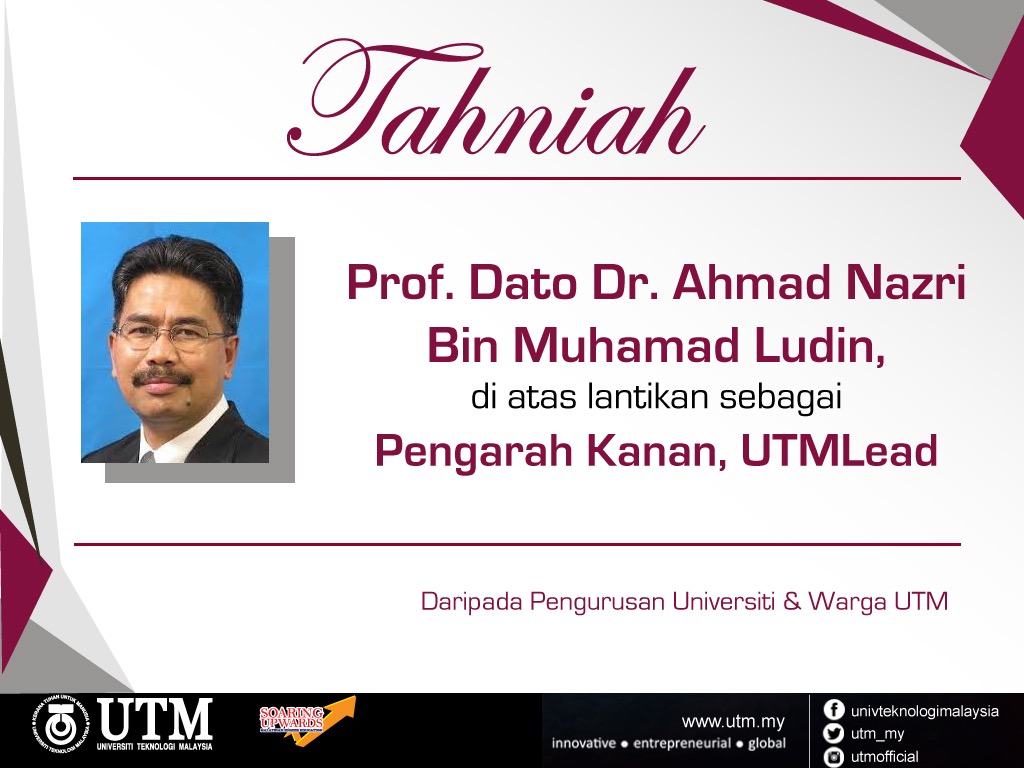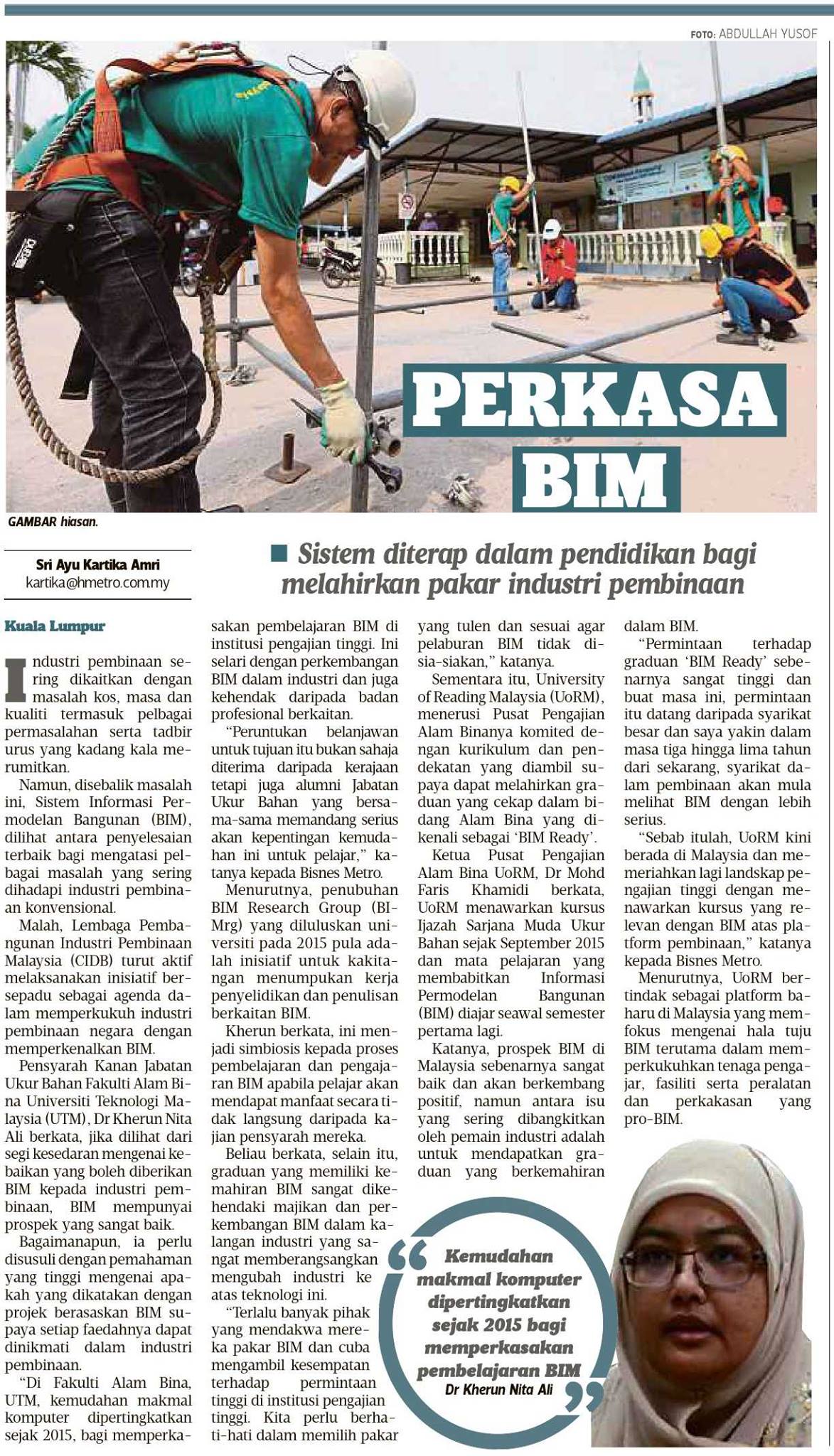by webmaster FAB | Aug 2, 2016 | Featured Slider, News, photo
The UTM-Low Carbon Asia Research (UTM-LCAR) Centre, Faculty of Built Environment, co-hosted with the ICLEI Southeast Asia Secretariat a side event entitled Advancing Sustainability of Asian Cities and Regions and staged an exhibition on the same title at the Third Session of the Preparatory Committee (PrepCom3) of the United Nations Conference on Housing and Sustainable Urban Development (Habitat III) held on 25-27 July 2016 in Surabaya, Indonesia.
The important event was the third of three meetings by the Preparatory Committee established under the United Nations General Assembly Resolution 67/216 to carry out preparations for the Habitat III Conference to be held in Quito, Ecuador on 17-20 October 2016. A total of 4,248 registered attendees from 142 countries descended on Surabaya to contribute to discussions on the New Urban Agenda before the Habitat III Conference in Quito.
UTM and the Department of Urban and Regional Planning, Faculty of Built Environment are proud to have contributed to the discussion on the New Urban Agenda through the side event and exhibition, which have been visited by dignitaries including Dr. Basuki Hadimuljono, Minister of Public Works and Housing of the Republic of Indonesia and YBhg. Datuk Haji Mohammad bin Mentek, Chief Secretary, Ministry of Urban Wellbeing, Housing and Local Government, Malaysia.
by webmaster FAB | Aug 1, 2016 | News
Seluruh warga Fakulti Alam Bina merakamkan ucapan tahniah dan syabas atas pelantikan YBhg Professor Dato’ Dr Ahmad Nazri bin Muhamad Ludin sebagai Pengarah Kanan Di Pusat Kepimpinan Akademik (UTMLEAD) bagi tempoh 3 tahun mulai 1 Ogos 2016 hingga 31 Julai 2019.
Tahniah dan syabas YBhg Dato’.

by webmaster FAB | Jul 31, 2016 | Featured Slider, News
Universiti Teknologi Malaysia has contributed significantly as one of five Partner Universities (PUs) to the success of the 2nd installation of the prestigious Asian Undergraduate Summit (AUS) organised by the National University of Singapore’s NUS Students’ University Scholars’ Club (USC).
The AUS is an annual thematic program that was inaugurated in 2015 by NUS-USC. The AUS brings together strictly selected Asian universities (the PUs) to host the “Overseas Leg” program of the summit in which NUS students would visit for one week. In return, NUS would host the main “Singapore Leg” program that hosts students from PUs also for one week.
The AUS 2016 has been aptly themed “Leadership in a Complex World: Smart Cities Smart Citizens”. UTM, through the Department of Urban and Regional Planning (JPBW), Faculty of Built Environment (FAB), played host to ten NUS students on 20-24 June 2016 with a rich array of intellectually charged input lectures from the academia and industry; site visits and briefings; interactive discussions; group activities and presentations.
Ten students from the Bachelor of Urban and Regional Planning Program (SBEP) then descended on NUS on 11-16 July 2016 together with participants from the other PUs that comprise: 1) Mahidol University, Thailand; 2) Universitas Airlangga Indonesia; 3) Vietnam National University; and 4) Bandung Institute of Technology, Indonesia.
In Singapore, some 90 AUS participants from NUS and the five PUs were treated to interesting input lectures; exciting site visits; stimulating design thinking workshops; and group activities. The program culminated with Group Final Presentations from the participants which were judged by a panel of facilitators.
UTM participants contributed to three group awards, including two “Most Feasible Award” which is nominated by the judges for practical and easy to implement product (a software); and one “Facilitators Choice Award” which is nominated by the all facilitators based on their evaluation on participants’ design thinking process.
UTM participants’ positive contribution to the successful organization of the AUS 2016 testifies to the quality and effectiveness of research and teaching in the university, and the innovativeness and competency of UTM graduates, which are at par with prominent institutions in the region.
by webmaster FAB | Jul 17, 2016 | In The Press, News, newspaper

Kuala Lumpur : Industri pembinaan sering dikaitkan dengan masalah kos, masa dan kualiti termasuk pelbagai permasalahan serta tadbir urus yang kadang kala merumitkan.
Namun, disebalik masalah ini, Sistem Informasi Permodelan Bangunan (BIM), dilihat antara penyelesaian terbaik bagi mengatasi pelbagai masalah yang sering dihadapi industri pembinaan konvensional.
Malah, Lembaga Pembangunan Industri Pembinaan Malaysia (CIDB) turut aktif melaksanakan inisiatif bersepadu sebagai agenda dalam memperkukuh industri pembinaan negara dengan memperkenalkan BIM.
Pensyarah Kanan Jabatan Ukur Bahan Fakulti Alam Bina Universiti Teknologi Malaysia (UTM), Dr Kherun Nita Ali berkata, jika dilihat dari segi kesedaran mengenai kebaikan yang boleh diberikan BIM kepada industri pembinaan, BIM mempunyai prospek yang sangat baik.
Bagaimanapun, ia perlu disusuli dengan pemahaman yang tinggi mengenai apakah yang dikatakan dengan projek berasaskan BIM supaya setiap faedahnya dapat dinikmati dalam industri pembinaan.
“Di Fakulti Alam Bina, UTM, kemudahan makmal komputer dipertingkatkan sejak 2015, bagi memperkasakan pembelajaran BIM di institusi pengajian tinggi. Ini selari dengan perkembangan BIM dalam industri dan juga kehendak daripada badan profesional berkaitan.
“Peruntukan belanjawan untuk tujuan itu bukan sahaja diterima daripada kerajaan tetapi juga alumni Jabatan Ukur Bahan yang bersama-sama memandang serius akan kepentingan kemudahan ini untuk pelajar,” katanya kepada Bisnes Metro.
Menurutnya, penubuhan BIM Research Group (BIMrg) yang diluluskan universiti pada 2015 pula adalah inisiatif untuk kakitangan menumpukan kerja penyelidikan dan penulisan berkaitan BIM.
Kherun berkata, ini menjadi simbiosis kepada proses pembelajaran dan pengajaran BIM apabila pelajar akan mendapat manfaat secara tidak langsung daripada kajian pensyarah mereka.
Beliau berkata, selain itu, graduan yang memiliki kemahiran BIM sangat dikehendaki majikan dan perkembangan BIM dalam kalangan industri yang sangat memberangsangkan mengubah industri ke atas teknologi ini.
“Terlalu banyak pihak yang mendakwa mereka pakar BIM dan cuba mengambil kesempatan terhadap permintaan tinggi di institusi pengajian tinggi. Kita perlu berhati-hati dalam memilih pakar yang tulen dan sesuai agar pelaburan BIM tidak disia-siakan,” katanya.
Sementara itu, University of Reading Malaysia (UoRM), menerusi Pusat Pengajian Alam Binanya komited dengan kurikulum dan pendekatan yang diambil supaya dapat melahirkan graduan yang cekap dalam bidang Alam Bina yang dikenali sebagai ‘BIM Ready’.
Ketua Pusat Pengajian Alam Bina UoRM, Dr Mohd Faris Khamidi berkata, UoRM menawarkan kursus Ijazah Sarjana Muda Ukur Bahan sejak September 2015 dan mata pelajaran yang membabitkan Informasi Permodelan Bangunan (BIM) diajar seawal semester pertama lagi.
Katanya, prospek BIM di Malaysia sebenarnya sangat baik dan akan berkembang positif, namun antara isu yang sering dibangkitkan oleh pemain industri adalah untuk mendapatkan graduan yang berkemahiran dalam BIM.
“Permintaan terhadap graduan ‘BIM Ready’ sebenarnya sangat tinggi dan buat masa ini, permintaan itu datang daripada syarikat besar dan saya yakin dalam masa tiga hingga lima tahun dari sekarang, syarikat dalam pembinaan akan mula melihat BIM dengan lebih serius.
“Sebab itulah, UoRM kini berada di Malaysia dan memeriahkan lagi landskap pengajian tinggi dengan menawarkan kursus yang relevan dengan BIM atas platform pembinaan,” katanya kepada Bisnes Metro.
Menurutnya, UoRM bertindak sebagai platform baharu di Malaysia yang memfokus mengenai hala tuju BIM terutama dalam memperkukuhkan tenaga pengajar, fasiliti serta peralatan dan perkakasan yang pro-BIM.
Sumber: Harian Metro (Sabtu, 16 Julai 2016)
by webmaster FAB | Jul 13, 2016 | News
NUS 2nd Architectural Educator Forum – Theme: “ENGAGE”
5 Aug 2016, Friday, 10am to 4.30pm
Venue: LR 423, Level 4, SDE 3, Dept of Architecture, School of Design & Environment, NUS
One of the many challenges of architectural education is about curriculum and content that exceed beyond addressing current needs, to anticipating the imperatives of future. Preparing students to be relevant and be empowered with future-ready abilities require collaborative efforts of the educators with the industry, communities, policy makers; various discipline educators and other stakeholders. “Engage” is the theme for the 2nd Architectural Educator Forum, it examines ideas in which real-life issues and learning opportunities are created from the collaboration between educators and parties outside the academia and across disciplines.
Mr Tan Shao Yen is the Managing Director of CPG Consultants Pte Ltd in which he leads a multi-disciplinary team of architectural, engineering and planning professions. He is the President of the Singapore Board of Architects. He received his BArch(Hons) from NUS and obtained MSc Sustainable Building Design (Distinction) through the BCA- University of Nottingham programme. His talk identifies the key attributes of future-ready architects and discusses these impacts on architectural education.
Dr Nirmal Kishnani is the author of “Greening Asia- Emerging Principles for Sustainable Architecture”. He is an associate professor and is also the Vice Dean of School of Design & Environment, NUS. He currently oversees the development of a new net zero-energy building for the school. His lecture focuses on his MSc ISD studio teaching where he engages the issues of designing for Singapore 2050 and shares insights on use of ‘back-casting’ technique
Dr Milinda Pathiraja is a Sri Lankan architect and a senior lecturer at Moratuwa University. His community library at Ambepussa inspired by his University of Melbourne doctorate thesis won the Holchim Global Silver Award for Sustainable Construction in 2015. He speaks about his ideas towards a more hands-on, collaborative and inter-disciplinary mode of education – bridging the escalating gap between design and construction, academia and practice, and architectural discourse and social realm.
Dr Tan Beng Kiang is an architect with over a decade of experiences designing public building and spaces. She received her doctorate from Harvard GSD and is a Senior Lecturer at NUS. She shares her pedagogical strategies in organizing service learning design studios working with communities in Southeast Asia and in Singapore. This learning process has empowered her students to be enthusiastic design activists.
Ms Hwang Yun Hye is a landscape architect. She received her post-professional MLA from Harvard GSD. She is an assistant professor in NUS, has been teaching landscape design studios, detail design, and research dissertation since 2009. Her design studio focuses on the emerging demands of the Asian equatorial urban context, deforestation management, multifunctional greenery for high dense neighborhood, and design actions for fast growing megacities. She shares with us the pedagogical richness of engaging local context and the framing its critical learning angle.
Mr Teoh Chee Keong received his architectural education from Chung Yuan Christian University, Taiwan. He is an assistant professor teaching in the School of Architecture & Built Environment, UCSI University, Malaysia. Chee Keong reflects on his ‘Kaktao46’ collaborative learning initiative that involved students from Taiwan and Malaysia to convert a timber building into a community amenity at Kuala Sepetang, a remote fishing village in Malaysia.
Programme:
10am : Opening & Introduction
10.15am:Tan Shao Yen, President of Singapore Board of Architects
10.45am: Dr Nirmal Kishnani, Associate Professor, Vice Dean, School of Design & Environment, NUS
11.15am: Dr Milinda Pathiraja, Senior Lecturer, Moratuwa University, Sri Lanka
12.00pm: Panel Discussion 1
12.30pm: Buffet Lunch
2pm: Dr Tan Beng Kiang, Senior Lecturer, Dept of Architecture, NUS
2.30pm: Hwang Yun Hye, Assistant Professor, Dept of Architecture, NUS
3pm: Teoh Chee Keong, Assistant Professor, UCSI University, Malaysia
3.45pm: Panel Discussion 2
4.30pm: Closing


